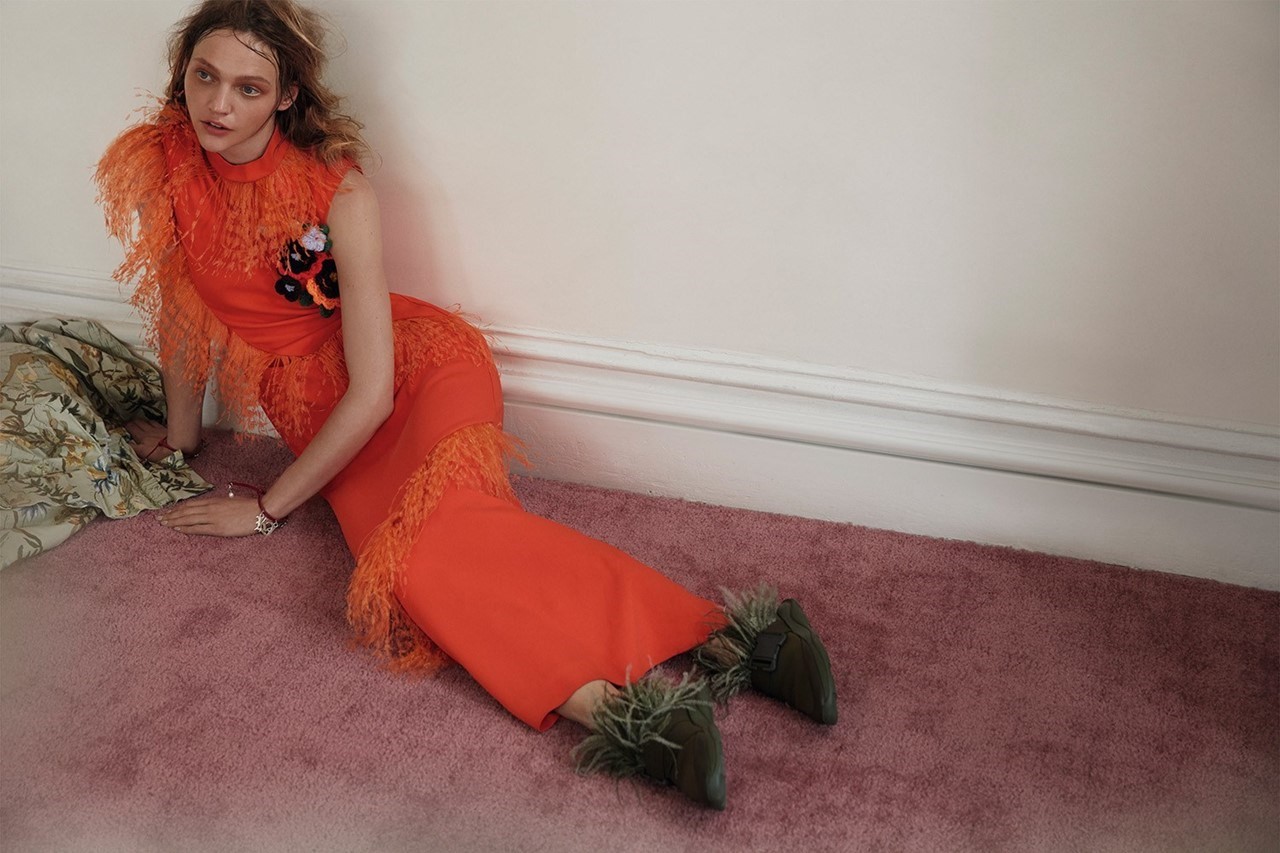In memory of Deborah Orr, a wonderful writer and great friend. She loved this interview with Christopher and Tammy Kane from the A/W16 issue of AnOther Magazine. It is as compassionate, insightful and uproariously funny as she was. Her memoir, Motherwell: A Girlhood, published by Weidenfeld & Nicholson, is out in January, 2020.
Our thoughts are with her family at this time.
Deborah Jane Orr
1962 – 2019
Growing up in the unglamorous village of Newarthill in Scotland, designer Christopher Kane and his older sister Tammy forged a deep childhood bond, letting their off-kilter imaginations loose and carving a beguiling dreamworld of their own. Their joint vision has propelled the pair from Scotland to London, a flagship store in Mayfair and global acclaim for their label, now celebrating its ten-year anniversary. We met the siblings at their Dalston studio to discover the secrets and magic of their formative years.
You couldn’t understand, not fully, unless you grew up where they did, that Christopher Kane and his sister Tammy are alchemists. Not just talented creative artists – talented creative artists are ten-a-penny. These guys are much more than that. These guys are something else. They have taken the base metal of their background – in a bleakly redundant steel-making shire – and transformed it into gold, literally: gold leather, glowing through a bloom of iridescent purple. Those shoes? Those trousers? Those boots? That jacket? They make you weep again that Prince is dead.
In the 2017 Resort collection, titled Pansy, arresting dissonances abound, controlled and disciplined by that fiendishly indefinable mix of technical innovation and flair. Plaids with sheer panels underlaid with florals? Oh, go on then. Tweedy coats with collars that bristle with neon-bright sequins from some miniature cartoon junkyard? Why the hell not? And pansies. Of course.
Big pansies. Wee pansies. Silk pansies. Leather pansies. Delicate pansies. Tough pansies. And human faces rising like pansies from pansies. So many variations on a simple, delightful theme. Just like pansies – fresh and unique, self-seeding, spreading. Past glories can always be spotted in Kane’s work, though promiscuously crossbred into something different and new. But the important things stay the same: glamour, subtlety, intelligence, innovation, imagination, instinct, commitment and love. These, above all, are and always have been the features that make Kane’s work, which can seem so disorientatingly diverse, instantly recognisable, unique, exciting and seductive. They were there for Autumn/Winter 2016 too. But more of clothes later.
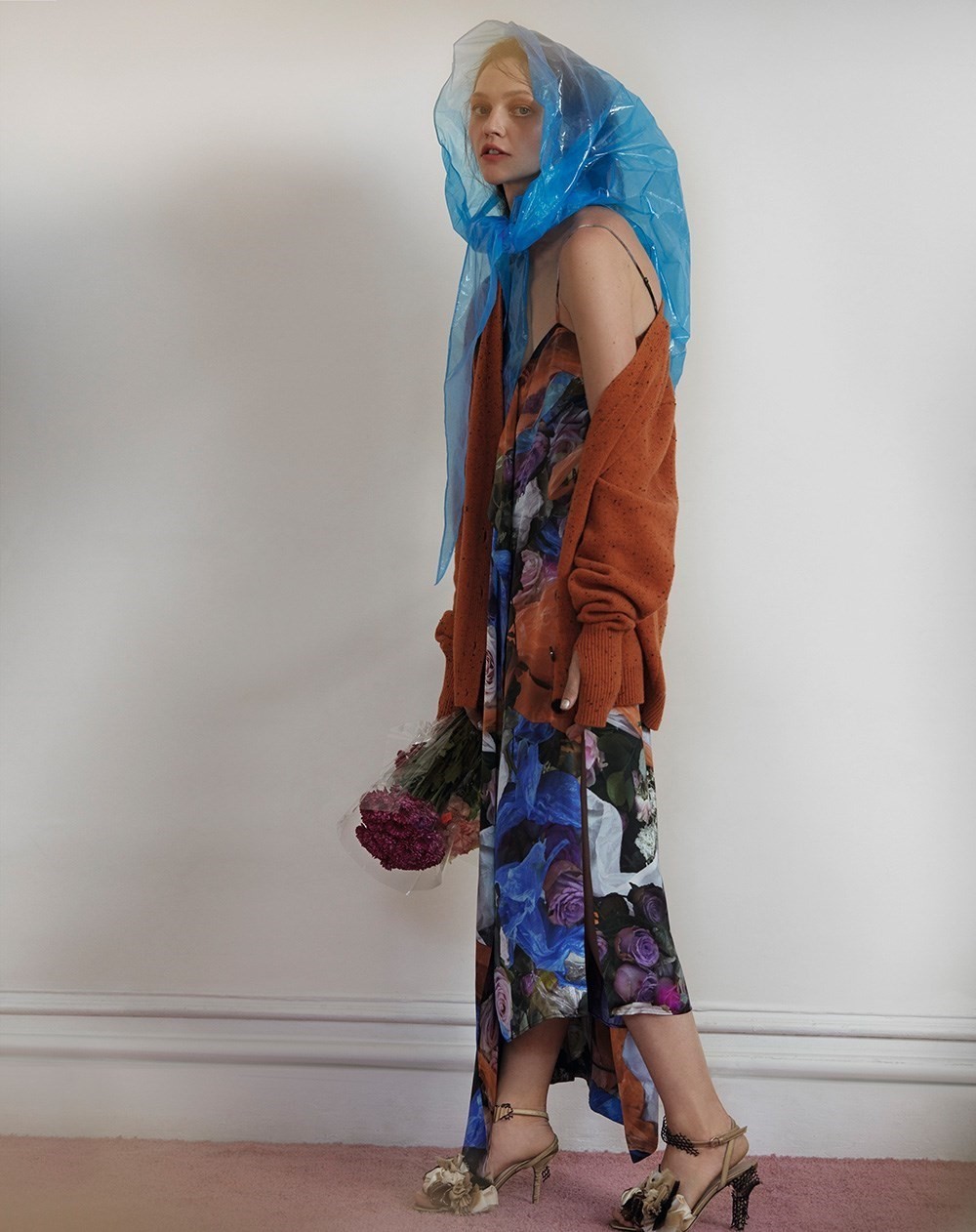
Because Christopher Kane’s 2006 debut show is now fashion legend, signalling as it did the arrival of a neon-bright, shocking new talent, much attention has been paid to Kane and much information is in the public domain. It’s well known that he always works with his older sister, that they’ve always been close, that they draw on the memory palace of their shared childhood, full of signifiers and codes, in the creation of their work.
It’s well known that they hail from Newarthill, a resolutely unglamorous village near resolutely unglamorous Motherwell, at the centre of rust-belt Scotland, where “fashion” means “make something from wrought iron”. It’s well known that Christopher’s early introductions to fashion, and to Saint Martins, where he studied for six years under the late Professor Louise Wilson, came from obsessive television-watching. It’s well known that the Kanes did their early work on a shoestring, in a council flat, with Tammy acting as Christopher’s model, muse and collaborator, like she’s always been. It’s well known that they’re extraordinarily gifted and original. But unless you’ve actually been to Newarthill, it’s hard to comprehend how strikingly improbable this pair are.
Christopher and Tammy wouldn’t say this – they’re fiercely loyal to their community and love their home village – but having been born and bred in the area myself, my own view is that the place is a total fucking dump (whose people deserve much better). The proudest moment of my youth was when The Face named Motherwell, alongside Essen in Germany and some other apology for civilisation that I don’t recall, as the three most terrible places in Europe. It wasn’t mere style-bible confirmation that my home town was terrible that made me proud. I already knew that, all too well. It was that Motherwell had actually made the top three of something.
But Newarthill’s far too insignificantly rubbish even to make the top three of crap places. Motherwell is (or was) to Newarthill as Mayfair is to Dalston. Neatly enough, Christopher Kane’s flagship store is in rich, manicured, West End Mayfair and Christopher Kane’s headquarters is in poor, grime encrusted, East End Dalston. Which is where Christopher and Tammy sit awkwardly before me, in a white, wipe-clean office where big framed paintings by Christopher lean in stacks against the walls.
The two of them are limbering themselves up with chit-chat, before they decide whether they ought to start getting into doing what they do, which is reaching into the core of their beings, finding wonder and magic in their memories and observations, their thoughts and their feelings, and presenting them to the world with all the frankness and authenticity, all the passion and skill, they can muster. Which is a lot of frankness and authenticity, a lot of passion and skill. But more of that later, too.
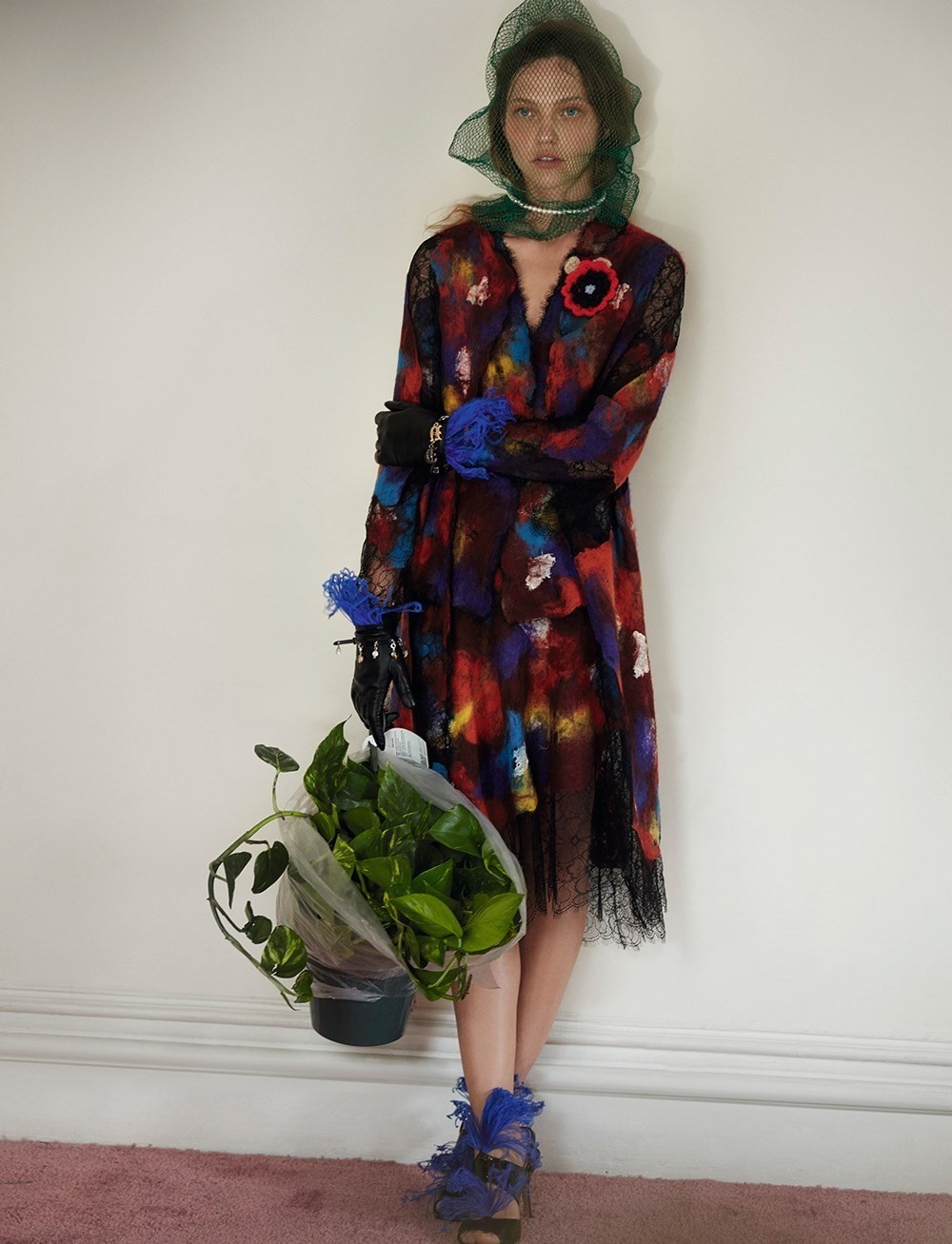
I find it hard to imagine what Newarthill would make of this pair. Yet, the two of them have no sob stories. Quite the reverse. No one made them feel weird. No one made them feel uncomfortable. They felt different, especially Christopher. But that wasn’t because anyone else made them feel different. They were loved by their family, immediate and extended. They were liked by their peers. They were encouraged by their teachers, indulged even. They agree that their childhood was “idyllic”. They talk of a close family life, really close, physically and mentally relaxed with each other.
Tammy explains, “We were never in trouble. We could sit and have a conversation with our mum and dad about anything. It was quite liberal–” “Yeah, very liberal,” Christopher agrees. The two break into each other’s sentences all the time, often just to provide emphasis, like each is the other’s bearer of spoken-word italics. But the liberality is important – and not very North Lanarkshire, not back then. It wasn’t just the freedom the children had to watch telly, or go to bed when they wanted to – they both say that’s why they love working through the night – or the people that came and went around them. All of it got Christopher ready for London, too.
Tammy went to the School of Textiles and Design at Heriot-Watt University in Galashiels in Scotland when Christopher was just 13. He used to go and visit her, sharing her higher education as she would go on to share his. They moved to London together, after Tammy had graduated with a first, when Christopher was 18. “It was like the stars aligned,” Tammy says. “I would visit her in Galashiels and love it,” Christopher says, “and not only stay a weekend but I’d stay days. I should have been at school but my mum was okay with it, because I was loving it, I was loving being around the people there, the community and everyone was really great, everyone... And there were also gay men, boys who were obviously–” “Yeah, that’s when you started to come out.”
“That’s when I was starting to come out because… I was literally, like, terrified. You could never admit that at school, but then I was in Tammy’s community, mixing with people who were five years older than me, drinking, I was having a great time–” “And they’re all still our pals, still our pals today.” “Still friends today. But it gave me such insight because the very first gay man I met was Bobby, Bobby Ross, and he was at his most camp at that point. He’s different now, but he was wearing glitter and his hair was peroxide blonde and he was roller skating, and he would do that in and around the pubs of Galashiels–” “In daylight.” “In daylight, yeah. Me and my pal Gerard used to go there, and Gerard was in denial that he was gay for so long. But we knew he was gay, and we’d go there and literally spend weeks because we just loved hanging about with the girls at Galashiels.”
Which is all pretty serious work, because many a naive wee Scots lad turns up in London and finds that his mind is too blown and his body too busy experimenting for him to get much of a grip on what he’s supposed to be doing at his seat of higher learning. Christopher arrived in London, at 18, having done all that, totally focused on getting all he could out of Saint Martins. Which, as it turned out, was absolutely everything possible. But what I want to know is how that relationship became so close, how a sister and brother, five years apart, end up spending a decade at college, then a big-time career together. Tammy dives right in, with a portrait that could have come out of a DH Lawrence novel, of the physical closeness of the family. “My dad has psoriasis so we would pick his back every night–”
To my own horror, I start to laugh. It’s the thought of the little Kanes, grooming their dad, like monkeys. Christopher, quite rightly, is not impressed. “My dad had chronic psoriasis and it’s a horrible disease. I’ve developed it in my life so I really don’t… I’m lucky because I have it in small patches, but my dad’s body was completely covered. I’ve never seen anything like it today. Even when you Google psoriasis, I’ve never seen it like my Dad had it. It was as if he’d been drenched in boiling hot water, his body was all red lumps. We always used to be like his nurses, in a way, and we used to put ointment on his back, and–” “His hair, everywhere.” Psoriasis flares up due to stress. Why, I ask, was their dad so stressed? “He had businesses, and also my two older brothers were wild at that point, but they weren’t that wild…”
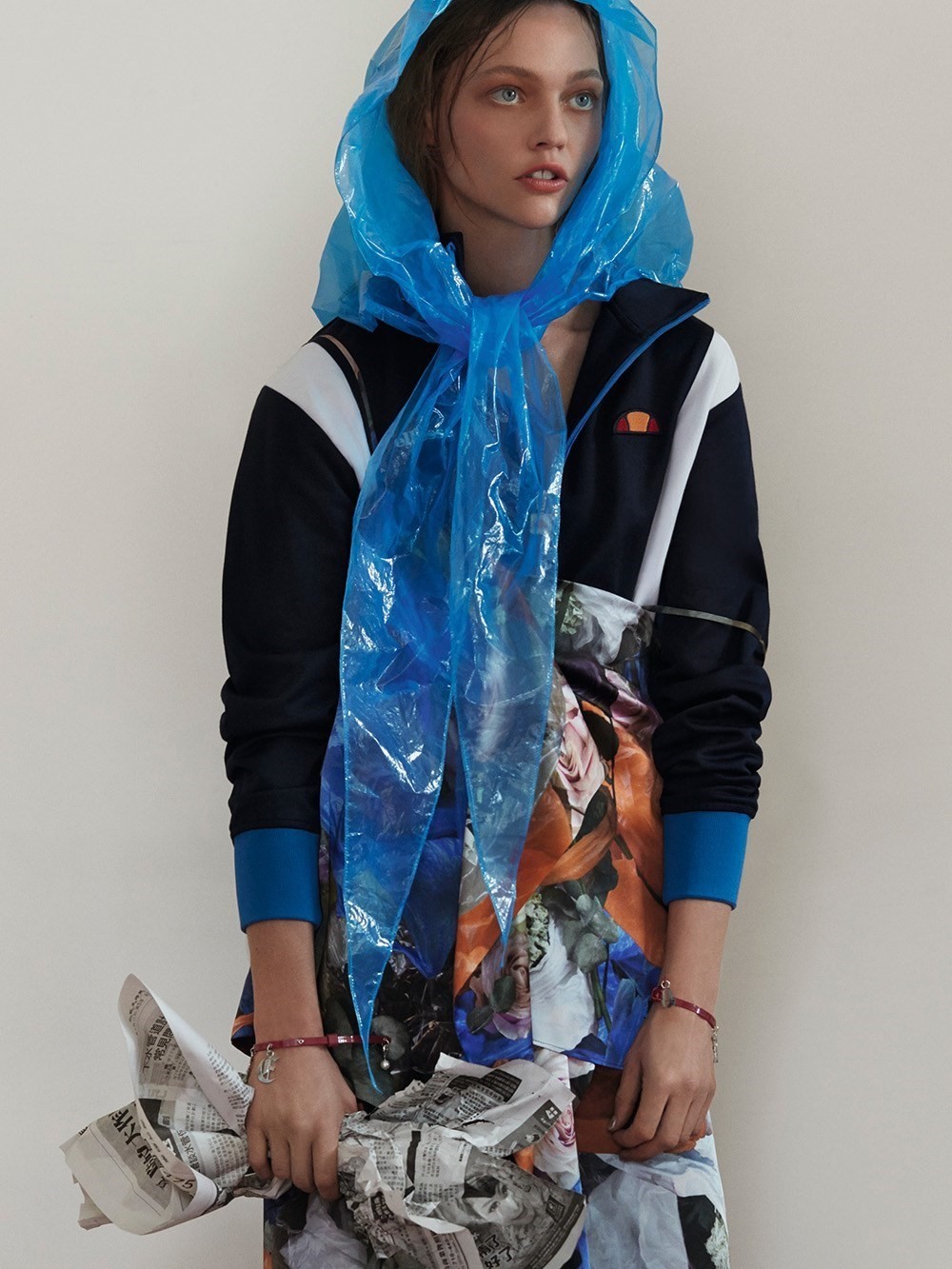
I see that Christopher’s uncomfortable. He doesn’t really want to think about why their dad’s entire body was erupting with stress. I ask him to talk about his mum instead, Christine, after whom Christopher is named, who died a year ago. “Now, my mum was such a strange, diverse character. She’d be so great with us, but then you’d see her be mean to my dad and you’d be, like, ‘Oh, my God’. She could turn–” “She was strong and vulnerable at the same time and I think she probably suffered a lot of depression,” Tammy chimes in. “I mean, she had three kids almost one after the other and my dad was out working all the time, and then we came along later, the last two of five. She was very resilient; she became quite tough and a real matriarch. The two of them were a really good couple together.” “Yeah, they were,” Christopher agrees. So, from the outset, the pair’s account of their family life is strange. It’s very positive even as it describes quite awful stuff . And there’s this suffering man at the centre of it, and his wife who, even though they’re supposed to be in this great partnership, is sometimes unkind to her ailing husband, for reasons the kids don’t understand. They are aware that I’m not seeing how it all adds up, that none of it makes sense.
“I’ll be honest,” says Christopher. “I was closer to my mum than I was my dad. I think Tammy… I think the girls of the family were closer to my dad. I think my dad was very protective of me and also I think he figured out I was – I think you could figure out if your child’s gay or not – I think he knew that and he was very conscious of that. He really supported me to go to art school and I couldn’t have gone to art school without my mum and dad’s support. But my dad, he was always in the background. We learned in later life that my mum was closer for a reason that I don’t want to talk about, but that was a turning point for me because I was like, that’s why I was always with my mum, she never let my dad in, so it was very strange. But he was always there.”
So, Tammy talks about their father most, and she picks up Christopher’s thread. “Yeah, he was so supportive, yet… I’m always in the middle of everything somehow, so when I would have my phone calls with my dad, usually once a week and, you know, that’s how he would know about you, Chris…” “That was when we moved to London,” Christopher adds as a detail. “If Chris called home,” Tammy continues, “they would talk if maybe my dad picked up… But it was never, you know, they wouldn’t be on the phone talking to each other. Whereas I would do that and then my dad would ask, ‘What’s happening with Christopher?’ or he might say, ‘Take this money, buy Christopher’s whatever’."
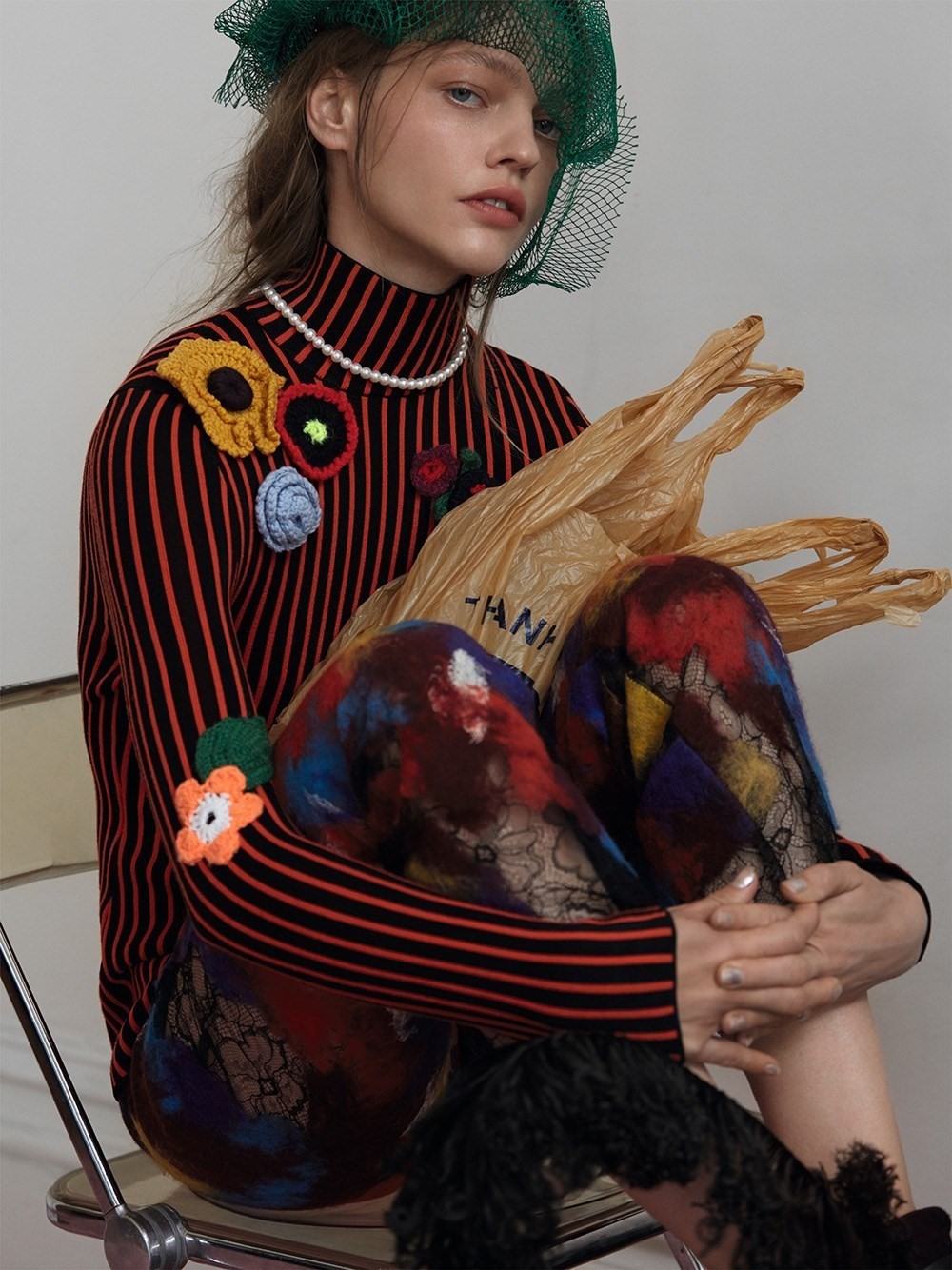
I ask if it was the same when they were tiny. “He was always out at work, my dad, but he was always there,” Tammy says. “I was really close to my dad and my sister too...” She blurts out, like it still hurts, like she can’t let it rest, even though they’ve said it before, “Sometimes my mum was quite mean to him.” “Yeah, sometimes,” Christopher reassures her. “We felt bad for him,” Tammy ploughs on, “and we couldn’t understand why, because he was so good to us and he worked so hard.” Again, Christopher agrees. “He was so good to my mum as well, and she had everything.”
Their dad was certainly an unusual man, for that part of the world, where you tended to work where your father before you had worked, stay where your parents stayed. Newarthill, Motherwell, the whole of North Lanarkshire… The reason why those places are so degraded, so blighted, is because they were places that had so much stuff that could be exploited, including plenty of people who didn’t have enough control over their own lives and destinies to do anything other than allow others to do the exploiting.
In my own young days, in the generation before the Kane siblings, the exploitation was still going on, of water and wood, iron and coal, of the plentiful natural resources that had made this part of the world a centre of steel-making since the birth of the Industrial Revolution. Christopher Kane’s designs meld science and nature, and for me that will always mean home, where science and nature came together to make steel. No one thought that industrial life could ever change, or that it ever should. Those Lanarkshire towns and villages were prosperous places, busy, purposeful, hard but fair, full of people who imagined themselves to be modest and resilient, and took pride in that. Maybe they were even a bit arrogant about it, a bit complacent. At that time, anyone who wanted even just a wee bit more than North Lanarkshire could offer was “getting above themselves”, or thought “they’re too good for us”. All thoughts outside the North Lanarkshire ambit were “snobbish” or “pretentious”.
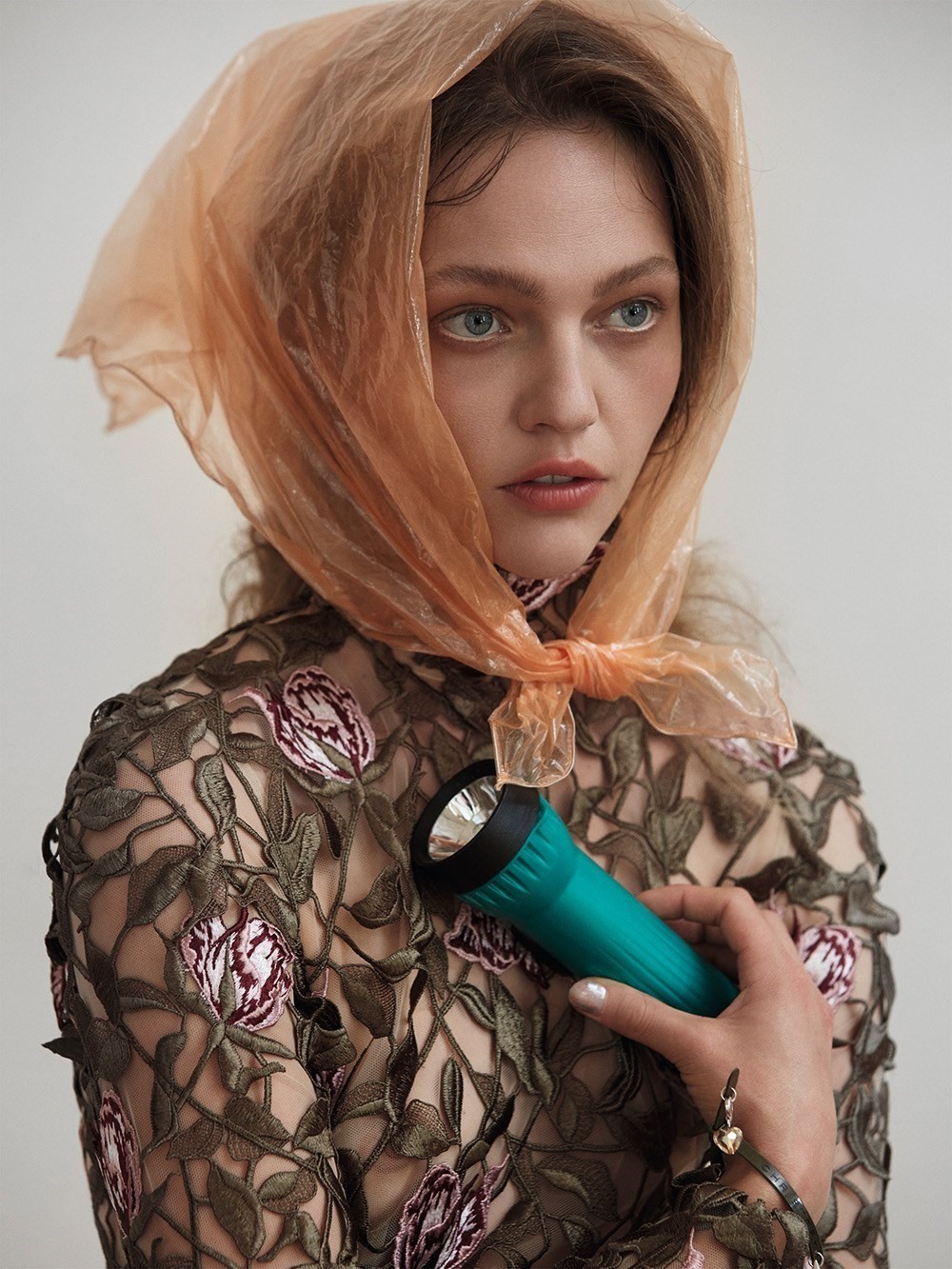
Thomas Kane wasn’t like that though. As a young man, he’d cycled into Glasgow – quite a ride – to do night classes in engineering. By the time his youngest children were born, he owned two businesses in Glasgow, and later added a large family home – bought and paid for, no mortgage – and then a pub in Newarthill. Their mum always worked too – as a cleaner, as a dinner lady. The Kane parents were grafters, self-improvers. They were better off, more independent, than the vast majority in their village. They did, however, stick hard to one of the community rules, and never gave themselves “airs and graces” about their good fortune.
The hard work, the three businesses, the plentiful cash? Christopher explains his divided relationship with it. “I thought it was normal. But then, obviously, it was such a contrast to other people in our neighbourhood and at school, because we had everything we ever wanted and there were a lot of poor kids. But we were always really quite responsible about it–” “We were not greedy or–” “We weren’t greedy, we were always, like, ‘Maybe I shouldn’t wear that because I feel bad because they don’t have it…’ I was always very conscious of other people, not being, like, ‘Oh, look at my new trainers’; I was always very conscious that there was so much poverty.”
“We weren’t greedy, we were always, like, ‘Maybe I shouldn’t wear that because I feel bad because they don’t have it; I was always very conscious that there was so much poverty” – Christopher Kane
Between the end of my childhood and the start of Christopher’s, there had been a gigantic change, the sort of change you imagine angry gods visiting on makers of steel who committed the sin of thinking themselves unassailable. Though, actually, it was just ruthless, inhumane, ideological politicians, who thought of themselves as angry gods. By the time Christopher was born, in 1982, the whole area was on notice of annihilation, its population living every day with the almost certain knowledge that they’d end up on the dole queue, if they hadn’t found themselves there already. Christopher was born into a community that had existed and developed around heavy, hard industry for a couple of centuries, and had had it snatched away, pretty much completely, in one pitiless, unyielding decade. This hollowed-out, stricken Lanarkshire, full of the human detritus of economic carnage, was the only Lanarkshire the Kanes ever knew.
It’s easy, growing up where and when these remarkable siblings did, to become bitter, angry, self-destructive and broken. They know all too well. They saw people falling victim to unemployment, poverty, mental illness and addiction throughout their childhoods. Yet even the sight of a community being systematically dispossessed was observed by the Kanes with calm compassion and affectionate respect.
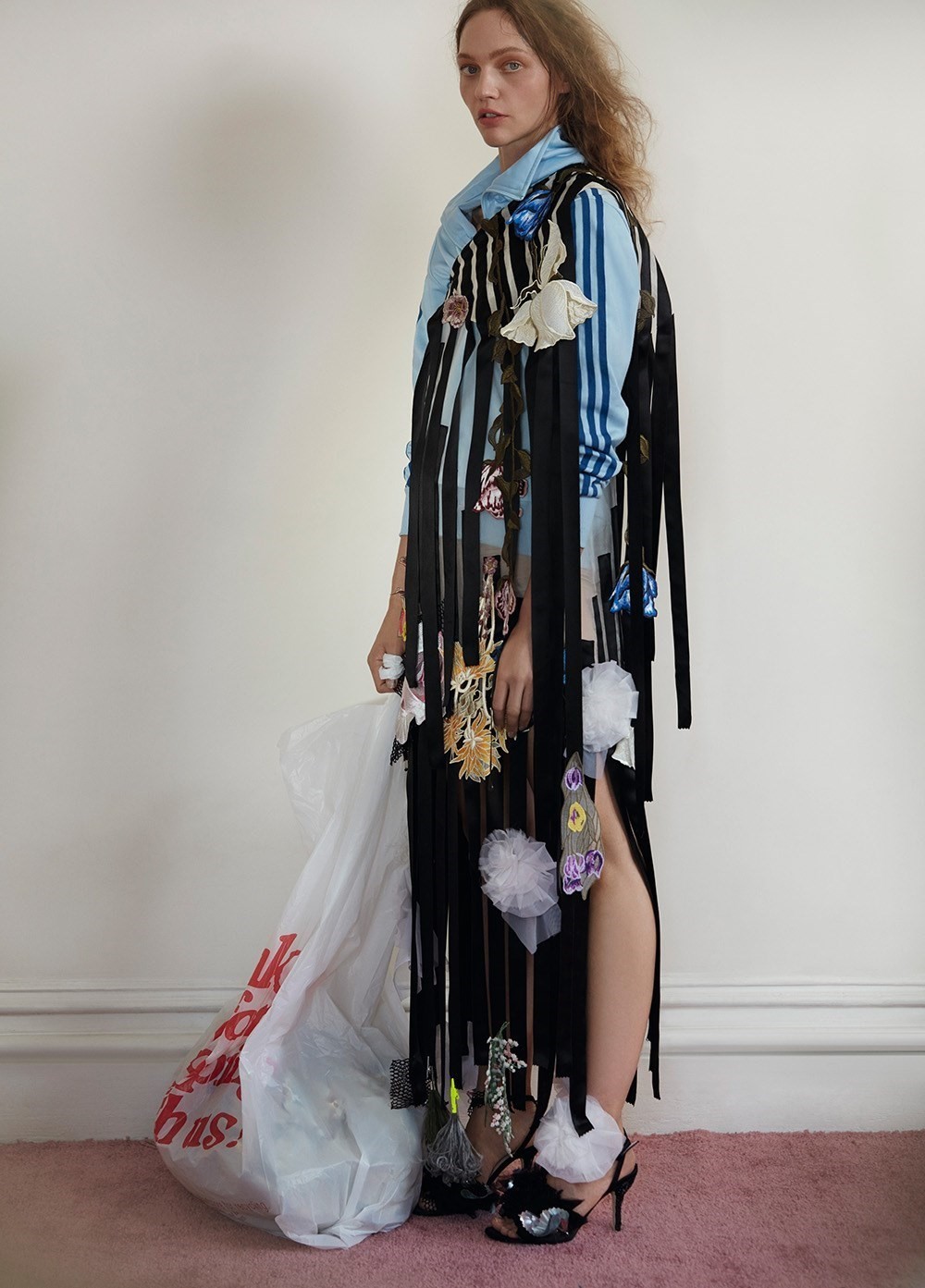
Tammy recalls, “My God, yeah, all the characters in our neighbourhood–” “The characters in our neighbourhood,” Christopher picks up, “they resonated and we still mention them in our work–” “Isobel Carson and–” “Isobel Carson and her Dr Scholl’s.” Christopher picks up Tammy’s reference. “Just... people we knew growing up... I don’t even want to say their names, but there were people who’d obviously been touched by a little bit of madness or depression because obviously a lot of things had happened–” “A hard life.” “A hard life, through unemployment, and because of things falling apart in their lives. They were always really intriguing, but they were terrifying as well. They used to really be in our world, because my auntie Sandra was always giving them money or giving them a drink or something. Or my mum would give them fags. I’d be terrified but I was always so intrigued by these people because they were, like, completely–”
Christopher gives up pussy-footing around. “They were mad.” Tammy comes back in. “Yeah, but there’s something about madness that’s… good. A letting go. They put things together without any consciousness of trying to make themselves look nice–” “They always looked great, I don’t know why, but they just did. They weren’t being derivative, they were just doing what they felt… One woman around the village, just had this amazing face, skinny legs, the skirts used to–” “Tall.” “Tall. The skirts used to be up here, I mean you could see her knickers, she’d be walking about with her little sandals or whatever, big jackets… Her hair, she’d probably cut it herself, so it was a mess, it was always like dead short and you’d see where she’d cut too far.” “But she’d been through a lot, I don’t know what, but something had happened bad in her life that had made her turn. And there were a lot of people like that, but Jan particularly stands out… She used to call my dad Uncle Tam, and I’d be like, ‘But she’s not related to you!’ We used to get really jealous didn’t we? We’d be like, ‘He’s not your dad; he’s not your uncle.’” “She really loved my mum and dad,” says Tammy, “because they were good to her; a lot of people were not good to her.” “They weren’t… yeah.”
The two talk on about their relatives, their aunts, who were around a lot, Granny Irvine, Granny Kane, people in the neighbourhood, school friends and their parents, all these people and their conscious or unconscious styles. The plaids, Tammy offers, come from the gingham overalls their mother wore to clean. The distinctive Kane brooches – Christopher’s wearing one – surely come from the uniform worn by their older sister, Sandra, who was a nurse before she joined the Kane gang, to manage the company’s human resources department.
“The characters in our neighbourhood, they resonated and we still mention them in our work. They were always really intriguing” – Christopher Kane
These two have been looking at people, their bodies and their clothes, from early childhood. Tammy remembers, when she was still small, a fur purse that the insurance lady had had for a while, and asking her Mum, in a whisper, if she could ask this woman, Betty, where it was. The woman was astonished that a child so young had noticed or remembered. She hadn’t used it for ages.
So, the Kane siblings’ childhood paradise was certainly a dark and complex place too, full of lost people. They acknowledge suffering, even terror. But they could always find pleasure and value in unlikely places and people. That’s a gift in itself. That pleasure, though real, wasn’t ever assumed to be everlasting. They felt like observers, outsiders. They knew, from early on, that this was not the place where their futures lay. And their parents encouraged them in that.
That makes sense, in an odd way. Their formative years were perfect, for them anyway, in a place unlike the place they were going to, where there was so much to collect. They spent their childhoods carefully packing up quotidian treasures that would be unusual, even exotic, quite unavailable, at destination adulthood, which they knew would be in the world of fashion. These two know how to find and exploit the resources around and within themselves, who always knew how to. Unlike so many of the people who surrounded them.
These are direct, open people, unafraid to see life as it is and make the very best of it. They want to know and be known. But they’re loyal, too, unwilling to trespass on the privacy of others, which can sometimes create very difficult tensions. They tell me, eventually, the story they’ve been skirting around. They know what it was that caused the stress in the house, their mother’s anger, their father’s ruptured flesh, the division in the family, with Christopher so much their mum’s last son, and Tammy so much their dad’s last daughter. Of course they do.
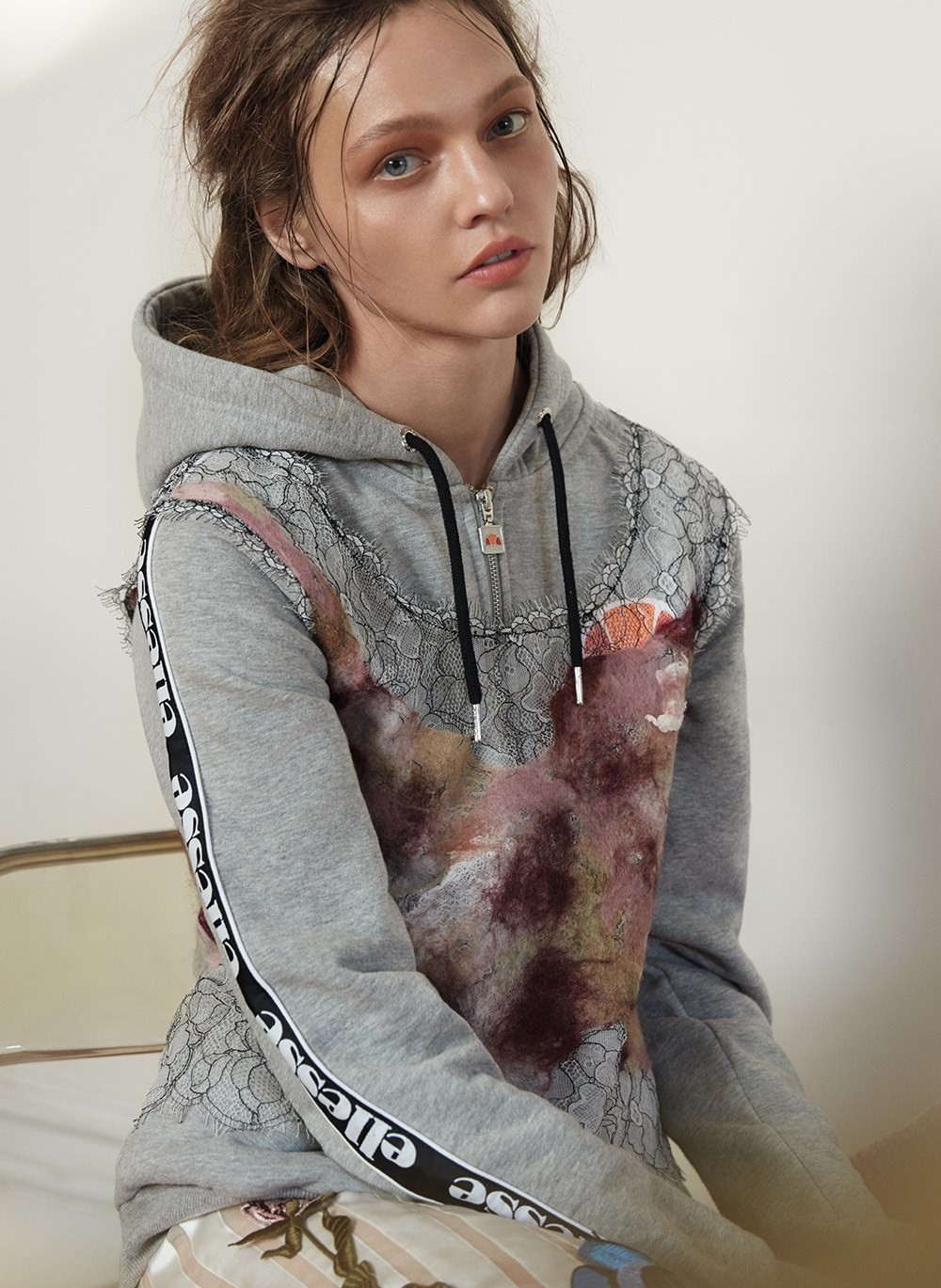
But they didn’t always know. They were told by a lawyer, right after their dad had died, 14 years ago. It had been their parents’ secret, then their mother’s secret. They kept it for her, and telling it is part of the long, hard process of saying goodbye to Christine, honouring her, thanking her, facing the future without her. It’s hard for them. They’re torn. But I think they understand that if people are fully to understand the profound narrative of their autobiographical art, then the pair have little choice but to be as frank as they can be. Completely frank.
“You could write a book, it’s unbelievable, but... I mean, I don’t know, are you comfortable telling Deborah or not?” Christopher answers Tammy’s question with a brief, stiff, courageous, “People know.” There had been another child, with another woman, Tammy quietly explains. “He was born a month before Christopher, so two women were pregnant at the same time, one in Glasgow and one in Motherwell. So this really explained Christopher’s relationship with my dad, which was really sad, because he was never allowed near Christopher because my mum took him for herself, you know–” “Yeah, ‘How dare you?’, ‘Don’t you dare!’, like, ‘This is mine!’ type of thing.”
“I was angry at the time; I was more upset for my mum. Christopher was 19 and I was 25 when my dad died, so it really shattered life, it felt big to us, you know? I found it very extraordinary that my mum was so strong, to withhold all of this information from us. She never told us all, probably because she was very proud–” “Embarrassed, yeah?” “And she was embarrassed. And that was probably where all of her anger manifested from, towards my dad, and we never understood it. I’ve got an enormous amount of respect for my mum… I was always close to her, but after that happened I just couldn’t believe, because I can’t, I can’t hold my water. Like, if I’ve got a problem I need to share it, otherwise it poisons my bloodstream, you know? Imagine living with it.”
“Yeah, toxic. Toxic, yeah.” “So it’s quite a complicated childhood for sure, but we didn’t know it was complicated. I had an idyllic childhood, I loved my childhood,” says Tammy. “I loved my childhood as well; it was great,” Christopher agrees. “It was great.” So a sad secret becomes a touching, moving, wonderful thing. Their children are grateful for all their parents gave them, and understand how much it was, how much it cost. They gave them the stability and confidence to go their own way, find in themselves the ability to create beauty and truth from ugly human chaos. I’ll never look at a Christopher Kane frock again, without seeing alchemy. I’ll always think of Newarthill as an improbable kingdom of magic. That’s what these guys do to you.
At the end of the interview, the Kanes pull out a rail of their favourite designs, through the still-brief years of their fame. They hold up garments and start talking about them. A beautiful, piebald, multi-coloured, fringed dress from Spring/Summer 2016, they say, is about fragmentation, loss of mental health, things falling apart, getting frayed. “We were getting into outsider art at that time,” Christopher says, “Scottie Wilson, Judith Scott, who’s an artist with Down’s syndrome.” I still see a beautiful dress, but I see all that too now.
They hold up a shift of blue chainmail from Autumn/Winter 2015. I see a shift of blue chainmail. But I also see the gates of Ravenscraig, the huge steelworks near to where each of us grew up. “It’s British Steel blue, near enough!” I say. “So it is,” they reply. “We have blue in every collection, somewhere.” The Ravenscraig gasholder – British Steel blue – towered over our lives and for years after the works had shut down. They hold up a SodaStream-coloured top and skirt, from Spring/Summer 2013, and I remember the Barr factory in Scotland, making Irn-Bru from girders, and I remember the Alpine man who delivered crates of “ginger”, door-to-door. North Lanarkshire loves fizzy drinks.
I get the hang of it myself, and hold up a green lamé top with a high, round neck and matching pleated skirt from Autumn/Winter 2015. “Is this Granny Kane?” I ask. When they agree that it is, I feel like I just got a gold star. They hold up a beautiful dress from Autumn/Winter 2016, black ribbons plunging over white, drifts of bright-and-black lace appliquéd flowers soaring from the hem. It’s for Christine, newly gone. “That must be the most lovely memento mori a mother has ever had from her children,” I say. “Definitely a woman from Newarthill.” The pair of them look quizzical, then laugh. Their spirits are huge and their spirits are light. Great people. The best.
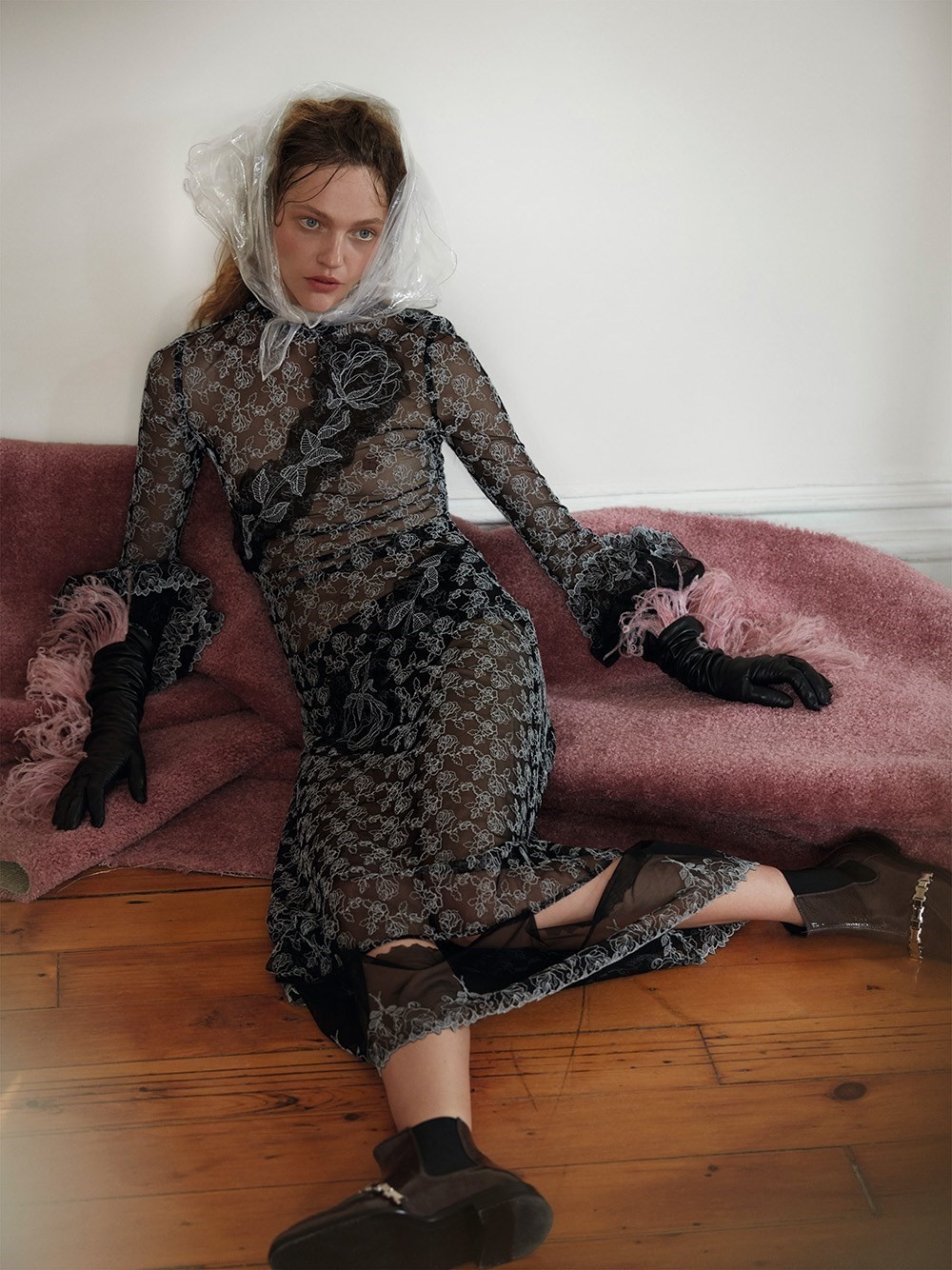
All clothes Christopher Kane A/W16; Hair Peter Gray at Home Agency using Shu Uemura Art of Hair; Make-up Susie Sobol at Julian Watson Agency using Chanel Le Rouge Collection N°1 and Le Lift V-Flash; Model Sasha Pivovarova at IMG; Casting Noah Shelley at Streeters; Set design Andy Harman at Lalaland Artists; Manicure Natalie Pavlovski at Bridge; Photographic assistant Will Englehardt; Digital tech Jonathan Nesteruk; Light design David Diesing; Styling assistants Tara Greville, Kat Banas and Skye-Maree Dixon; Hair assistant Takuya Yamaguchi; Make-up assistant Ayaka Nihei; Post-production 232 Studio; Production Felix Frith at Artist Commissions.
This story originally appeared in AnOther Magazine Autumn/Winter 2016.
